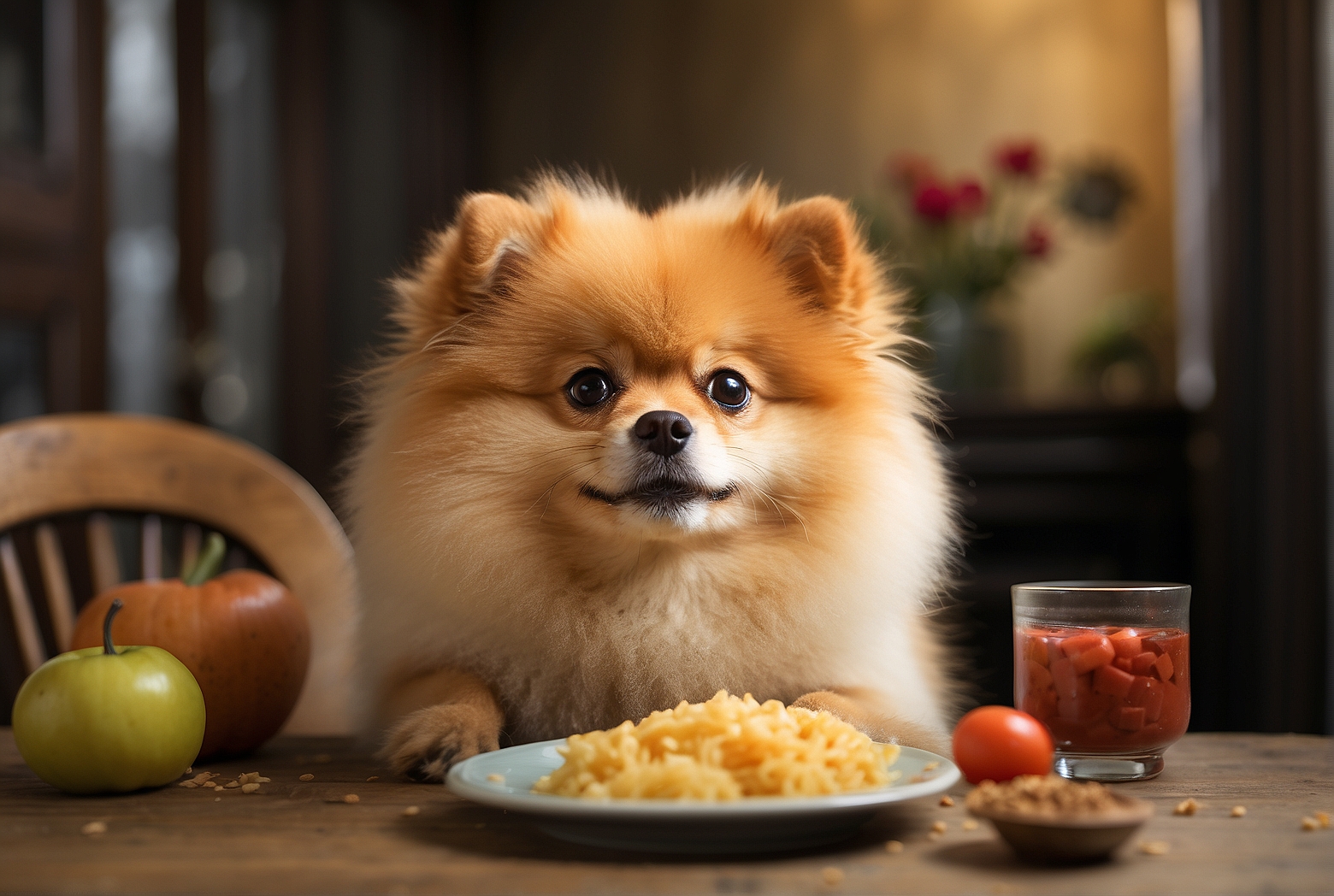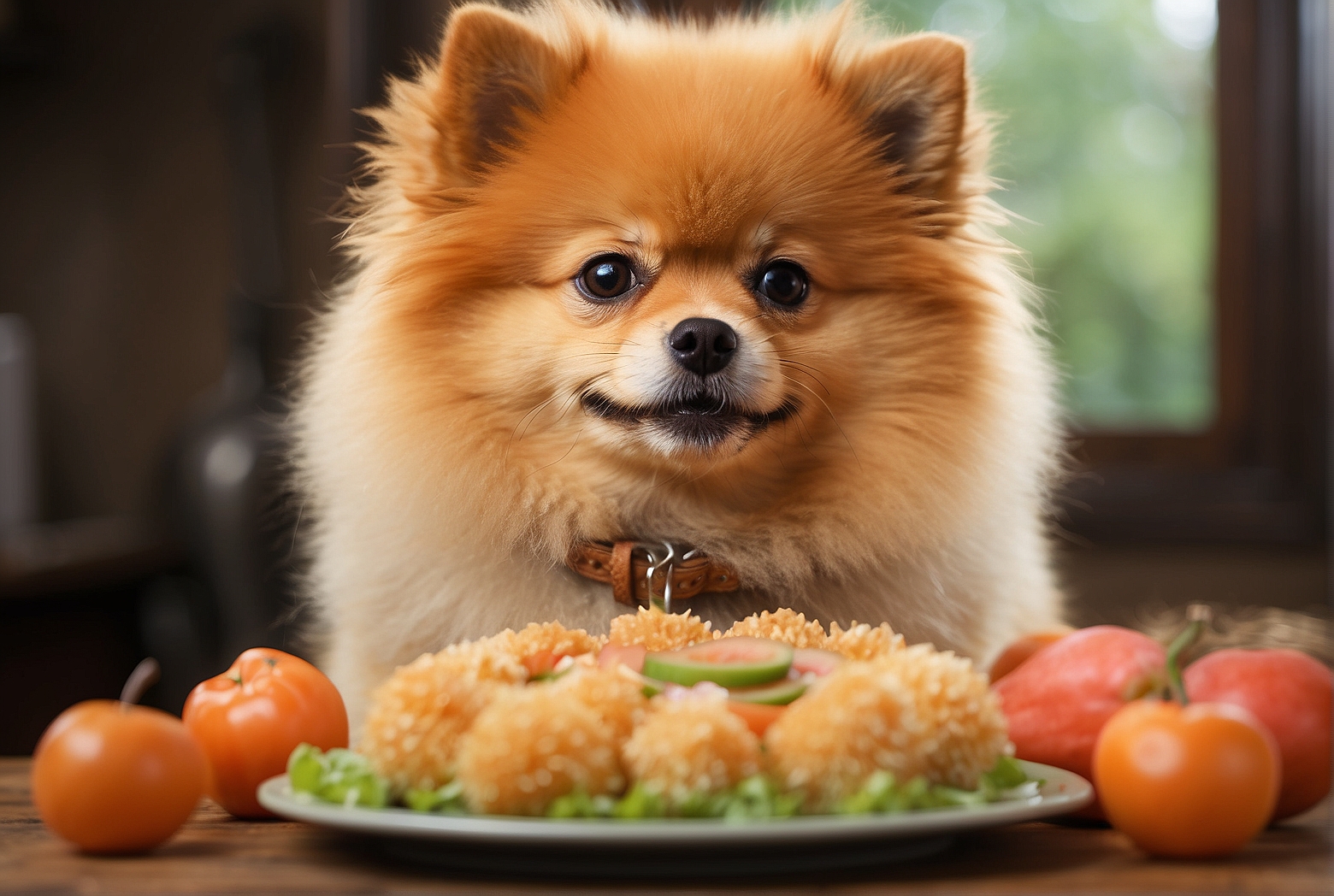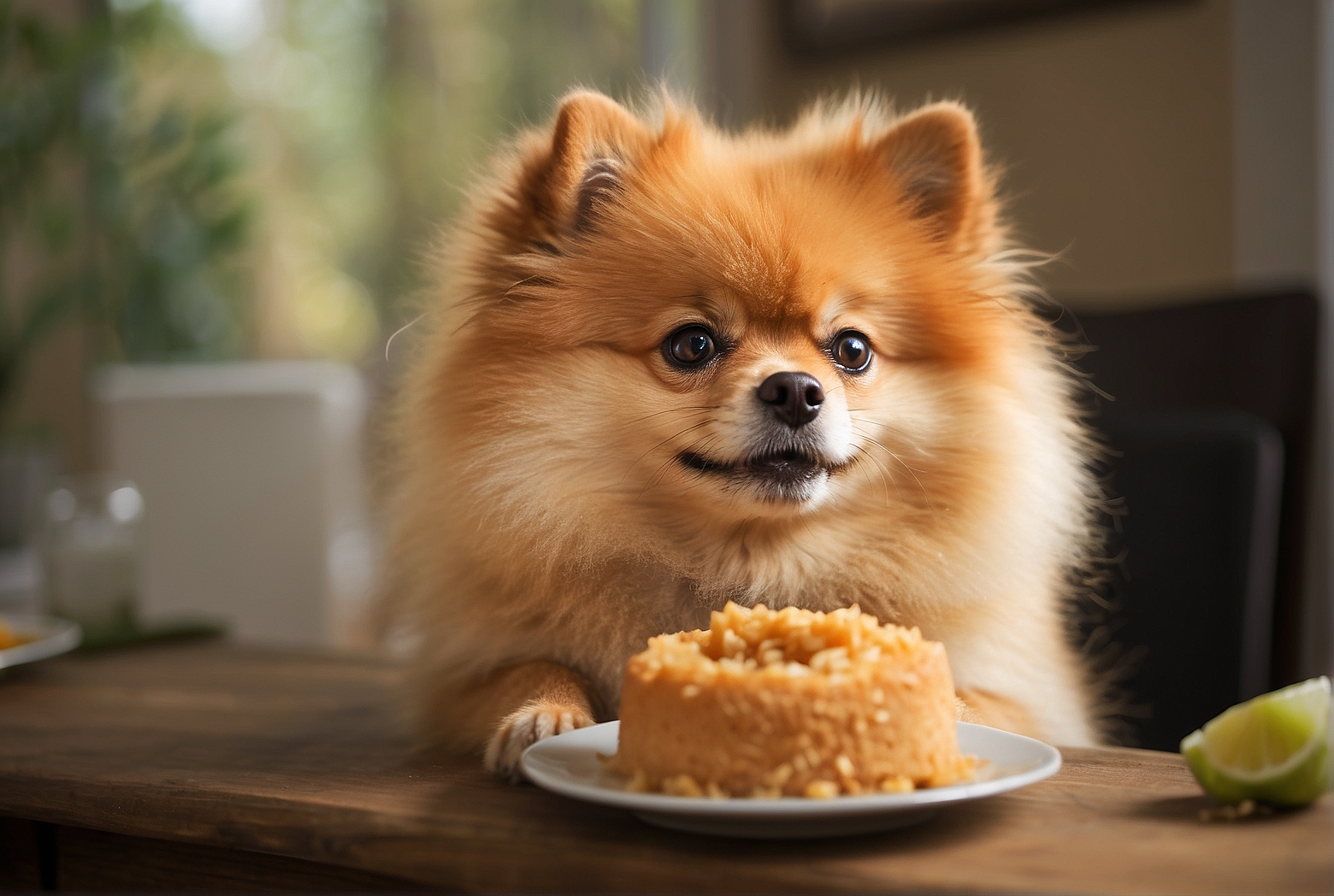Are you the proud owner of a Pomeranian, but find yourself constantly wondering why your adorable furball always seems to have an insatiable appetite? In this article, we’ll explore the potential reasons behind your Pomeranian’s constant hunger. From their high energy levels to their small size, there are a variety of factors that may contribute to their seemingly bottomless pit of a stomach. So, if you’ve ever pondered why your Pomeranian is always hungry, keep reading to uncover the secrets behind their voracious appetite.
Introduction
Understanding Pomeranians
Pomeranians are small, adorable, and lively toy breed dogs that are known for their abundant fur and cheerful personalities. They are one of the most popular companion pets, loved for their affectionate nature and loyalty. However, like any other dog, Pomeranians have specific nutritional needs, common health issues, and behavioral tendencies that should be taken into consideration for their overall well-being.
Common behavior of Pomeranians
Pomeranians are known to have an enthusiastic and spirited personality. They are often described as curious and intelligent dogs that crave attention and interaction with their owners. This breed is typically playful, alert, and can display a bit of stubbornness at times. While Pomeranians are known for their big personalities, they can also be prone to certain health issues and exhibit specific feeding behaviors. Understanding these traits is essential for providing them with the care and nutrition they need.
Pomeranian Nutrition
Importance of balanced diet
Providing a balanced diet is crucial for maintaining the health and well-being of your Pomeranian. A well-rounded diet that meets their nutritional requirements promotes strong bones, healthy skin and coat, supports their immune system, and provides energy for their active lifestyle. A balanced diet includes the right mix of protein, carbohydrates, fats, vitamins, and minerals, tailored to meet the specific needs of your Pomeranian.
Recommended daily caloric intake
Determining the appropriate caloric intake for your Pomeranian depends on factors such as their age, weight, activity level, and overall health. Generally, a Pomeranian requires between 40-55 calories per pound of body weight per day. It’s important to consult with your veterinarian to assess your Pomeranian’s individual needs and adjust their caloric intake accordingly.
Choosing the right dog food
Selecting the right dog food for your Pomeranian is crucial in ensuring their nutritional needs are met. Look for high-quality dog foods that are specifically formulated for small breed dogs. These foods are often packed with nutrients and designed to meet the unique requirements of smaller breeds. It is also advisable to choose a brand that uses natural and wholesome ingredients, devoid of artificial additives or fillers.

Avoiding overfeeding
Pomeranians, like many other small breed dogs, have a tendency to gain weight easily. Overfeeding can lead to health problems such as obesity, which can put additional stress on their joints and organs. It is essential to follow recommended portion sizes and avoid giving excessive treats or table scraps. It may be tempting to give in to their adorable begging or pleading eyes, but maintaining a healthy weight is vital for your Pomeranian’s overall well-being.
Possible Health Issues
Thyroid problems
Pomeranians are susceptible to thyroid problems, such as hypothyroidism. This condition occurs when the thyroid gland does not produce enough hormones, leading to weight gain, increased appetite, and lethargy. If you notice changes in your Pomeranian’s eating habits, energy levels, or weight, it is important to consult with your veterinarian for a proper diagnosis and appropriate treatment.
Diabetes
Another health issue that can cause increased hunger in Pomeranians is diabetes. This condition occurs when the body is unable to regulate blood sugar levels adequately. Symptoms may include increased thirst, frequent urination, weight loss despite increased appetite, and lethargy. If you suspect your Pomeranian may have diabetes, it is crucial to seek veterinary care promptly.
Intestinal parasites
Intestinal parasites, such as worms, can cause nutritional deficiencies in Pomeranians and lead to increased appetite. These parasites consume the nutrients from the food your Pomeranian consumes, preventing proper absorption by their body. Regular deworming and preventive measures are vital in safeguarding your Pomeranian’s health.
Pancreatic disorders
Pancreatitis, inflammation of the pancreas, is another condition that can affect Pomeranians and cause increased hunger. This condition can be triggered by certain dietary indiscretions or occur spontaneously. Symptoms include decreased appetite, abdominal pain, vomiting, and diarrhea. Prompt veterinary intervention is necessary to manage and treat pancreatitis in Pomeranians.
Dental problems
Dental issues can also contribute to increased hunger in Pomeranians. Tooth decay, gum disease, or oral infections can cause discomfort when eating, leading to a decreased appetite or difficulty in chewing. Regular dental care, such as teeth brushing, professional cleanings, and dental examinations, are essential to maintain your Pomeranian’s oral health and overall well-being.

Exercise and Stimulation
The role of physical activity
Regular exercise is important for your Pomeranian’s overall health and can help manage their appetite. Engaging in activities such as daily walks, playtime, or even agility training can provide the necessary physical stimulation they need. Exercise helps burn calories, promotes muscle tone, and improves cardiovascular health, which can aid in weight management for your Pomeranian.
Mental stimulation and enrichment
Providing mental stimulation is equally important for Pomeranians, as it helps keep their minds sharp and prevents boredom that may lead to excessive begging for food. Mental activities such as puzzle toys, treat-dispensing toys, and interactive games can help engage your Pomeranian’s cognitive abilities and provide a sense of fulfillment. Mental stimulation is a great way to divert their attention from hunger and fulfill their need for mental engagement.
Training and obedience
Obedience training is an essential aspect of a Pomeranian’s life. Teaching them basic commands and good manners not only helps them become well-behaved companions but also promotes mental stimulation. Training sessions can be used as an opportunity to reward your Pomeranian with treats, ensuring they are consuming their food in a controlled manner. This can help regulate their appetite and discourage excessive begging for food.
Behavioral Reasons
Begging for attention
Pomeranians are known to be attention-seeking dogs. If they have learned that begging for food results in getting attention from their owners, they may exhibit this behavior frequently. It is important to establish boundaries and consistently reinforce proper behavior to discourage excessive begging.
Anxiety or stress
Anxiety or stress can also contribute to increased hunger in Pomeranians. Just like humans, dogs may turn to food for comfort or as a coping mechanism when feeling anxious or stressed. Identifying and addressing the root cause of their anxiety, whether it be separation anxiety, fear, or environmental changes, can help alleviate their need for constant food consumption.
Food aggression
In some cases, excessive hunger in Pomeranians may stem from food aggression. This occurs when a dog becomes possessive or defensive over their food, leading them to eat as quickly as possible or guard their food from other animals or humans. Food aggression can manifest as growling, snapping, or biting. If your Pomeranian displays these behaviors, it is important to consult with a professional dog trainer or behaviorist to address and manage the underlying issues effectively.
High food drive
Pomeranians, despite their small size, can have a high food drive, making them prone to constantly seeking out food. This can lead to persistent hunger or overeating. Ensuring that your Pomeranian receives nutritious meals that fulfill their hunger can help satisfy their food drive and minimize the need for constant food-seeking behavior.
Establishing a Feeding Schedule
Benefits of a consistent routine
Establishing a feeding schedule for your Pomeranian provides numerous benefits. A consistent routine helps regulate their metabolism, prevents overfeeding, and promotes healthier digestion. Having set meal times allows you to monitor their food intake and maintain portion control, reducing the risk of weight gain and other associated health issues.
Portion control
Portion control is crucial to prevent overeating and maintain a healthy weight for your Pomeranian. Consult with your veterinarian to determine the appropriate portion sizes based on their age, weight, and activity level. Remember to adjust the portion sizes as needed to accommodate any changes in your Pomeranian’s weight or nutritional needs.
Avoiding free-feeding
Free-feeding, where food is available at all times, can lead to excessive eating and weight gain in Pomeranians. It is recommended to avoid leaving food out for extended periods and instead serve meals at specific times. This allows you to monitor their food intake more effectively and prevent the habit of constant grazing.
Feeding Practices
Utilizing puzzle toys or slow feeders
Puzzle toys or slow feeders are great tools to help regulate your Pomeranian’s eating habits. These interactive devices make mealtime more engaging and encourage slower eating, promoting satiety and preventing excessive hunger. They can also provide mental stimulation and help divert their attention from constant food-seeking behaviors.
Feeding multiple small meals
Instead of feeding your Pomeranian one or two large meals a day, consider dividing their daily portion into several smaller meals. This approach not only prevents hunger between meals but also helps maintain a steady energy level. It can also aid digestion, reducing the chances of bloating or indigestion.
Incorporating low-calorie snacks
If your Pomeranian still seems hungry between meals, you can incorporate low-calorie snacks into their daily routine. Opt for healthy options such as baby carrots, green beans, or small portions of lean protein. These snacks provide a sense of fulfillment without adding excessive calories to their diet.
Seeking Veterinary Advice
When to consult a veterinarian
If you notice a significant increase in your Pomeranian’s hunger that cannot be explained by their normal feeding routine or activity level, it is important to consult with a veterinarian. They can conduct a thorough examination, assess your Pomeranian’s overall health, and determine if there are any underlying medical conditions contributing to their increased appetite.
Diagnosing underlying health issues
A veterinarian will be able to diagnose any possible underlying health issues that may be causing your Pomeranian’s constant hunger. Through blood tests, physical examinations, and other diagnostic tools, they can investigate potential causes such as thyroid problems, diabetes, or intestinal parasites. Once a diagnosis is made, an appropriate treatment plan can be developed.
Getting professional dietary guidance
Seeking professional dietary guidance is invaluable when it comes to understanding your Pomeranian’s nutritional needs. A veterinarian or veterinary nutritionist can provide expert advice and recommendations on selecting the right dog food, portion control, and managing your Pomeranian’s appetite effectively. Their expertise can help ensure your Pomeranian is receiving optimal nutrition and maintaining a healthy weight.
Creating an Enriching Environment
Providing mental and physical stimulation
Creating an enriching environment is vital for your Pomeranian’s overall well-being and happiness. Ensure they have access to a variety of toys, consider rotating toys to maintain interest, and engage in regular playtime. Mental and physical stimulation not only helps distract your Pomeranian from excessive food-seeking behaviors but also helps keep them happy and mentally sharp.
Engaging in interactive play
Interactive playtime with your Pomeranian is not only a great bonding experience but also an effective way to divert their attention from constant hunger. Play fetch, tug-of-war games, or hide and seek to keep them entertained and engaged. Engaging in regular interactive play sessions can help fulfill their need for mental and physical stimulation.
Keeping the dog entertained and satisfied
To prevent boredom or anxiety-related food seeking, it’s important to provide activities that keep your Pomeranian entertained and satisfied. Consider using food puzzle toys, interactive feeders, or treat-dispensing toys that require your Pomeranian to work for their food. This engages their problem-solving skills and provides mental stimulation, reducing the need for constant food consumption.
Conclusion
Understanding your Pomeranian’s needs is crucial for providing them with a healthy and balanced lifestyle. By recognizing their unique nutritional requirements, common health issues, and behavioral tendencies, you can take appropriate action to ensure their well-being. Maintaining a balanced diet, engaging in regular exercise and mental stimulation, establishing a feeding schedule, and seeking veterinary advice when needed are key components in providing the best care for your beloved Pomeranian. Remember, a happy and well-nourished Pomeranian is a healthier and more content companion.
